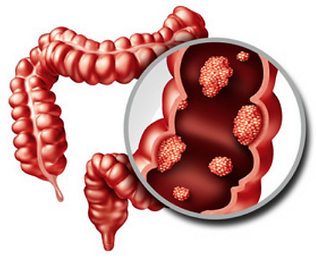Colon and Rectum Cancer
Colon and rectal tumors, unfortunately, are the most common. The patient may present with blood with bowel movements, abdominal or rectal pain, altered bowel habits, and weight loss.
The diagnosis should be suspected in any patient with these complaints and made through a series of studies. Once diagnosed, the patient should be staged and specific treatment offered depending on the clinical stage.
IT IS A CURABLE DISEASE IF IT IS DETECTED AND MANAGED IN TIME.


DR. EDGAR A. GONZÁLEZ MACEDO
General Surgeon, Coloproctologist

Abscesses and Anorectal Fistulas
ANORRECTAL ABSCESSES
.
Anorectal abscesses are a very common disease. They are generally generated from the infection of the anal crypts, causing the accumulation of purulent material that can spread in different directions around the rectum and anus.
.
The patient with an anorectal abscess presents discomfort such as intense and constant anorectal pain, fever, swelling in the region, general malaise, and purulent discharge if it drains spontaneously.
.
THE ASSESSMENT BY THE COLON AND RIGHT SURGEON IS VERY IMPORTANT TO RULE OUT OTHER CAUSES OF ANAL PAIN, SUCH AS AN ANAL FISSURE OR A COMPLICATED HEMORRHOID DISEASE.
.
HOW IS AN ANAL ABSCESS DIAGNOSED?
.
The diagnosis can be made in the office with a careful physical examination, confirming the diagnosis and ruling out other conditions such as an anal fissure or complicated hemorrhoidal disease.
.
TREATMENT OF ANAL ABSCESS
.
The mainstay of treatment is drainage of the abscess. In the case of a small abscess and if the patient's conditions allow it, drainage can be performed in the office with local anesthesia. If the abscess is larger, surgical drainage should be considered to thoroughly wash the area. Management with only antibiotics, without drainage, is not recommended, since there is a serious risk that the infection will progress.
.
ANORRECTAL FISTULAS
.
Approximately one third of the patients who presented an anorectal abscess will present an anal fistula, which corresponds to the path that the infectious process followed. The patient with an anorectal fistula has periodic drainage through a small hole around the anus, occasionally accompanied by pain and itching.
.
HOW IS AN ANAL FISTULA DIAGNOSED?
.
The diagnosis of an anal fistula can be made in the office with a careful and detailed physical examination. If the fistula is considered complex, imaging studies may be performed to delineate its anatomy and course.
.
TREATMENT OF AN ANAL FISTULA
.
The treatment of anal fistulas is surgical. There are different techniques for its resolution. The choice of the ideal procedure will depend on different factors, both specific to the patient and the path of the fistula, with the objective of eradicating the fistula path, preserving the continence of the patient (since this path generally crosses the anal sphincter in a certain percentage) and decreasing the risk of recurrence of the anal fistula.
.
In case you have discomfort suggestive of an abscess or an anal fistula, do not hesitate to go to an expert and trained doctor for its timely review and management.
%201.png)

See your certified colorectal surgeon for an expert assessment and answer all your questions about this condition
.
Dr. Edgar A. González Macedo
General Surgery - Laparoscopic Surgery - Colon and Rectal Surgery
Tel: 55 5272 3327 Ext. 2 WhatsApp and Mobile: 55 20 85 83 70
Puede seleccionar la Dirección del Consultorio que más le beneficie.